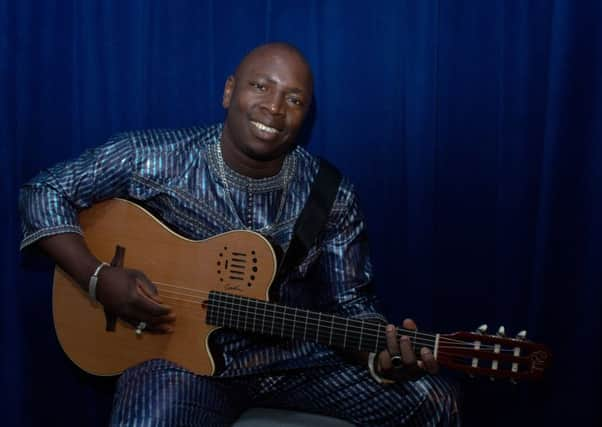Hendrix of The Sahara shows why he has the power on new album


Samba was recorded as part of the Woodstock Sessions, a critically-acclaimed series that blurs the line between live performance and studio recording with their innovative hybrid venue.
‘It was not a regular studio session nor was it a concert,’ Vieux says. ‘It was somewhere in between. We were recording the album, but we had an audience of about 50 people in the room with us. The audience understood it was to witness the process of recording an album, not to present a concert in a studio – we got the energy of a live concert with the quality of a studio recording.’
Advertisement
Hide AdAdvertisement
Hide AdGiven Touré’s natural musical curiosity, the far-reaching blend of Malian blues and praise song, funk, reggae, and rock make this his most mature, well-rounded effort to date. The live element, where Touré excels as a performer, shines through on every track, even though the band stopped whenever they wanted to change something up. This was not your average performance.
The hypnotic grooves his band creates allows him to let loose with a sense of ease and grace. Samba Si Kairi is a perfect example. A song about his parents, it reflects the larger narrative of the album’s title.
Samba means ‘second born’ in the Songhai language, his place in his family, as the son of legendary Malian artist Ali Farka Toure. While many cultures award the head position of a family to the first-born, it is the second child often conferred with power in Touré’s tradition. Samba Si Kairi is an old tune his grandfather would sing to Touré as a child.
‘Samba is one who never breaks, who never runs from threats, who is not afraid,’ Touré says. ‘It is said that Samba is blessed with good luck. This song is an homage to my grandparents, who gave me a nice childhood.’
Advertisement
Hide AdAdvertisement
Hide AdThe sweetness of childhood and family is countered by the sheer energy of the devotional Homafau Wawa. In this song he reflects on the recent jihadist takeover of sections of Mali. Musicians were banned, tortured and exiled during this harrowing period in which critical speech and artistic expression were under assault.
‘No-one has real power except for God,’ says Touré. ‘There are men who have the power to do things and who think they are strong who can destroy humanity or do harm to many. But if God doesn’t will it, it won’t happen. This song pays homage to the people in the north of Mali who resisted and endured the occupation of the jihadists. To all the women of the north who suffered violence and to all the men who met with tragic ends in the north.’
Religious fanaticism is not the only danger Touré addresses. He takes those that waste resources, chop down forests, destroy oceans, and murder wild animals to task on nature –harking back to Mali’s longstanding griot tradition, in which musicians and poets share morally relevant topics with their audiences.
‘There is nothing left in the forests, nor the rivers,’ he says. ‘We need to save and respect what’s left of nature so that humanity can survive. Let’s stop useless waste because nature is sacred and deserves our respect.’
Komedia, Brighton
Monday, June 12
Turner Sims, Southampton
Wednesday, June 14